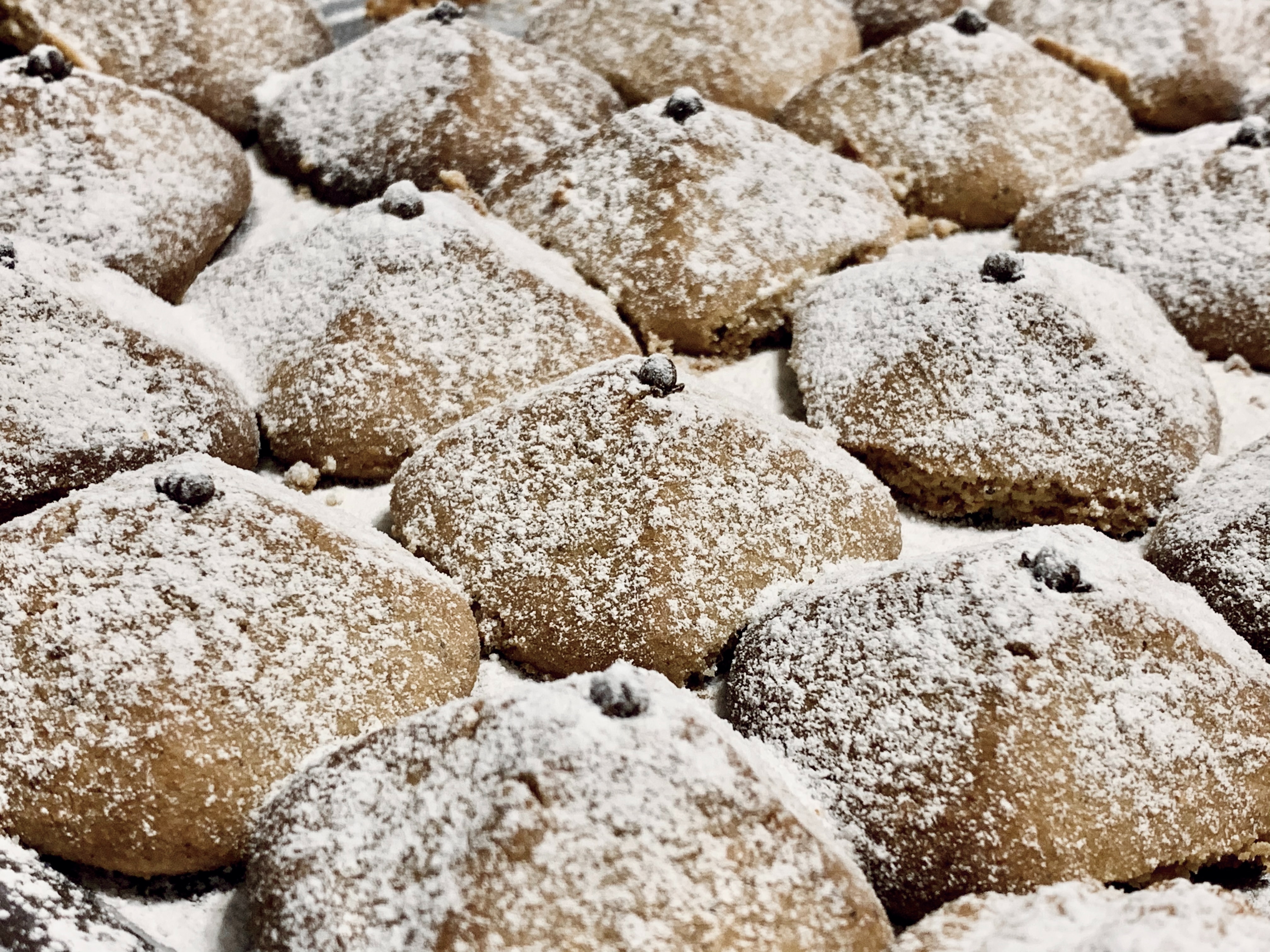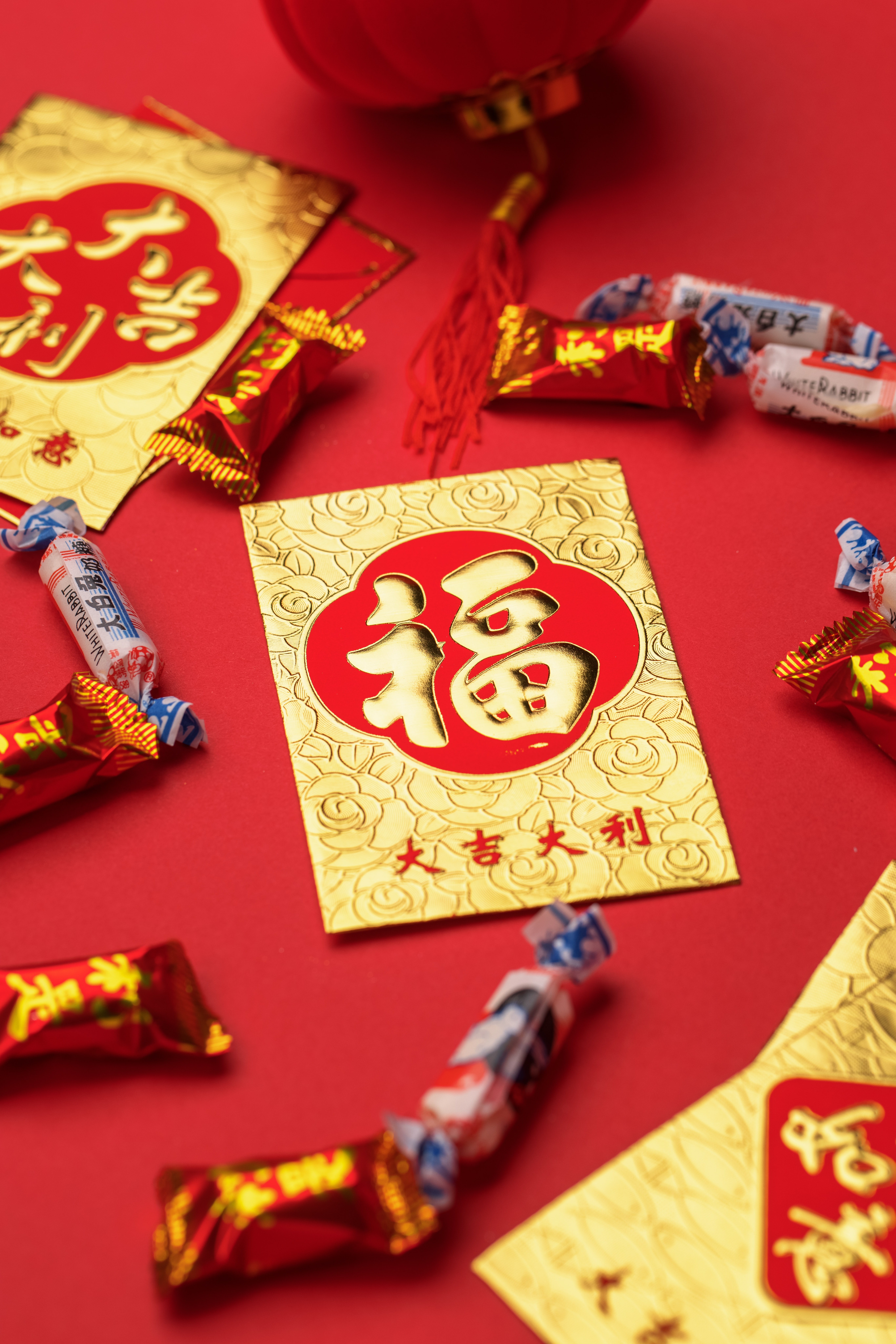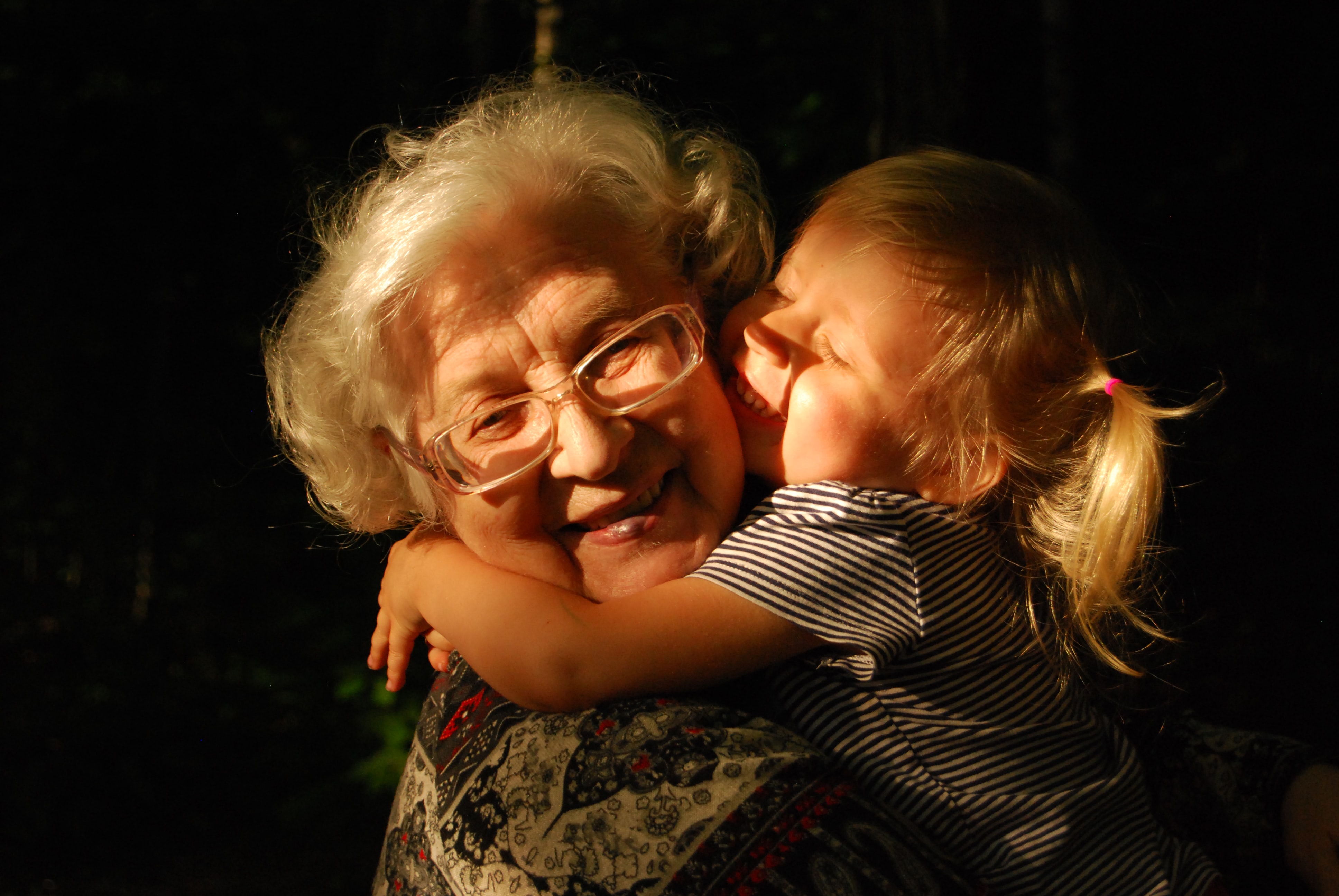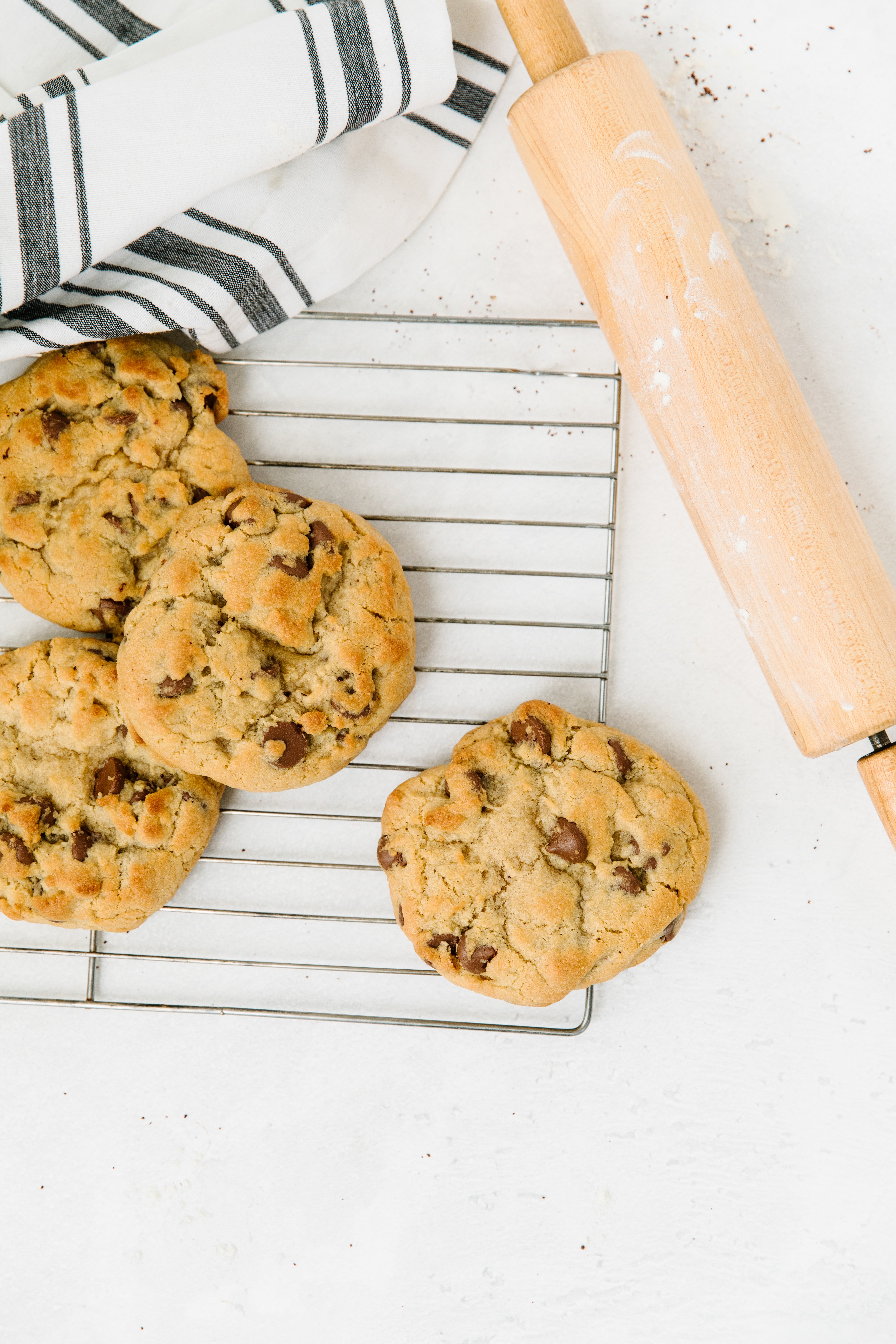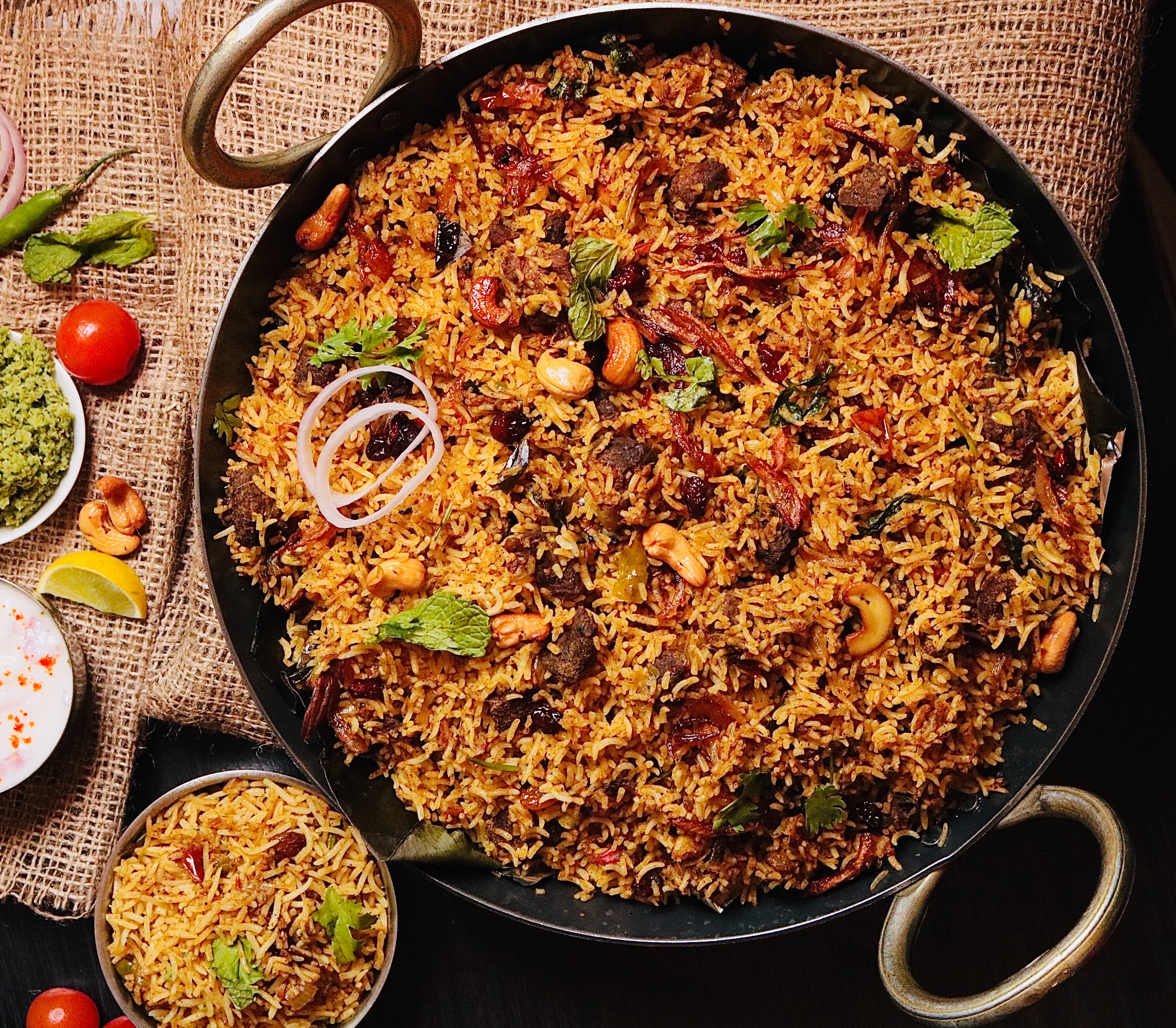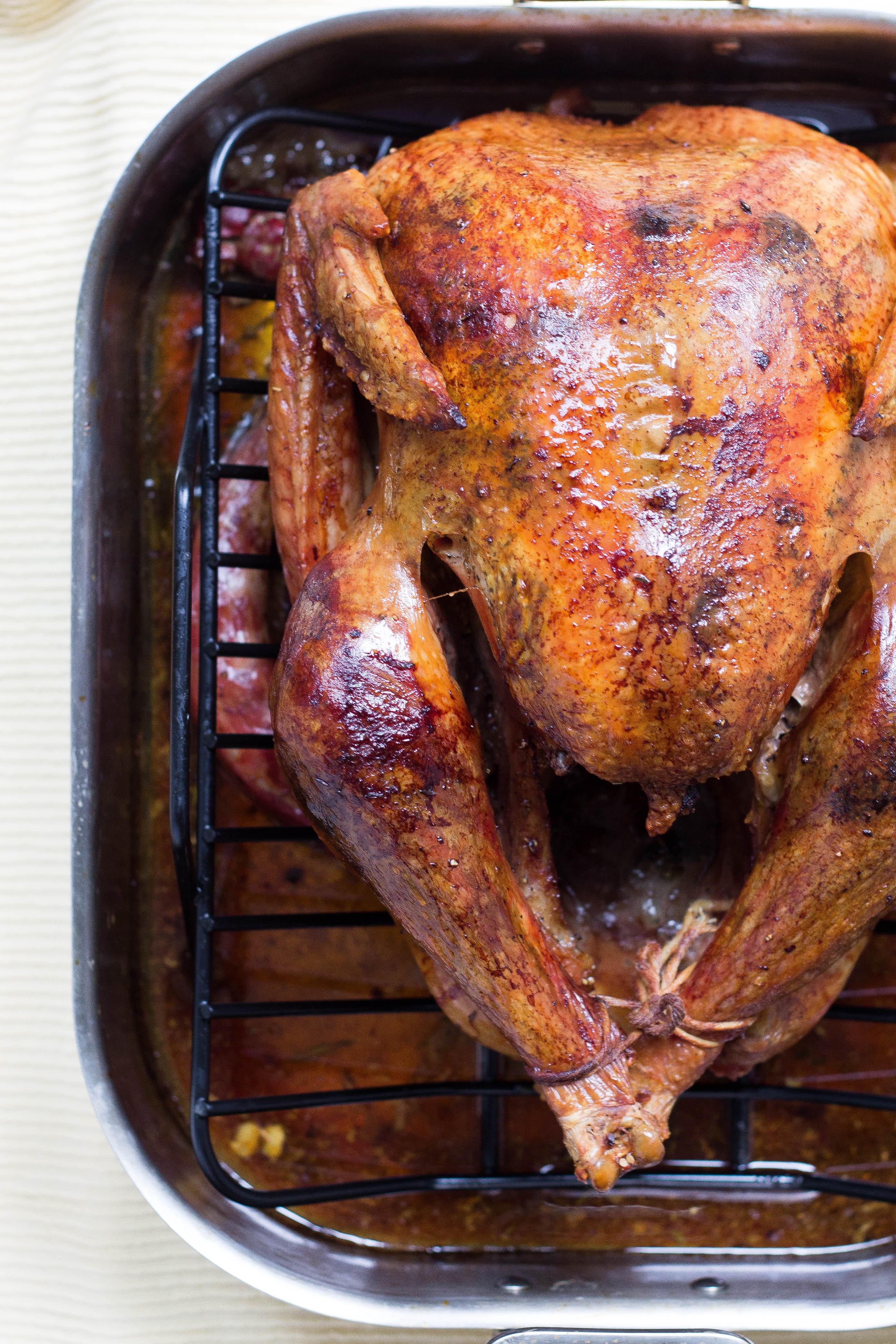My family bakes a lot of cookies for Christmas. It's become a tradition to spend a Saturday in December baking, then using the following Sunday to package the cookies and hand them out to friends and neighbors. It is my favorite part of the holidays, and not even seeing all the presents under the tree on Christmas day can beat the overwhelming joy that these cookies bring. The kinds we decide to bake differ a little from year to year — gingerbread and shortbread are always a guarantee — but sometimes we switch it up and try a new recipe. Some of the more traditional Greek cookies we make are Kourabiedes and Melomakarona.
Kourabiedes, or “snowballs” as we tend to call them, are a fan favorite among my friends and family. They originated in Persia, then spread to the Balkans and Turkey, and through Turkey spread to Greece. Because Greece was taken over by the Ottoman Empire in the 15th century, Greeks tend to share a lot of culture with Turkey, but there are some distinctions between Greek and Turkish food. The basis of these cookies is that they are one part sugar, two parts butter, and three parts flour. It'a a relatively simple recipe that a lot of European countries use, but what makes it Greek is the incorporation of almonds. In Greek culture, almonds are a symbol of happiness, prosperity, and good luck. Therefore, a variety of Greek dishes, especially holiday dishes, have almonds in them. The light color of the dough, and the powdered sugar that covers these cookies gives them a white complexion, which symbolizes goodness and makes them a popular snack for days of celebration. They are one of my favorite holiday cookies because the dough is soft and tends to crumble instead of melt in your mouth. The sweet flavor of the powdered sugar is complimented well by the mild taste of the dough and the underlying earthy taste of the almond. It creates a harmony of flavors that is loved by not only me, but my friends, neighbors, and family.
Melomakarona tend to be a little more divisive by nature, but, in my opinion, just as delicious. These cookies have rich flavors because of the nutmeg, cinnamon, and cloves in them, and they are doused in honey to balance out the intense taste. The technique used to apply the honey had originated in Crete. It was originally used on meligmata, a variety of delicacies which would be covered in honey, to appease demons. It was supposed to bring luck and prosperity into the new year. In fact, the word melomakarona itself comes from the combination of the word “meli,” which means honey, and “makaria,” which in ancient times meant blessed. These cookies are meant as symbols of luck and blessing, and are therefore perfect for celebrating the upcoming New Year. Sharing the luck and happiness melomakarona brings with the people around me brings me unbridled amounts of joy and holiday cheer.
